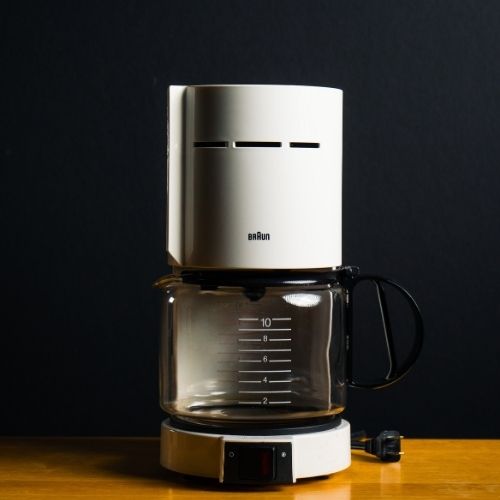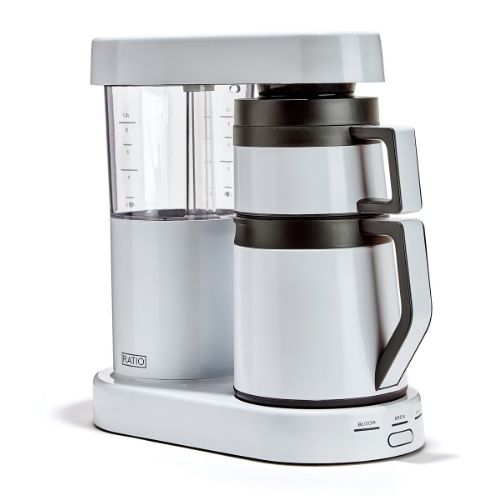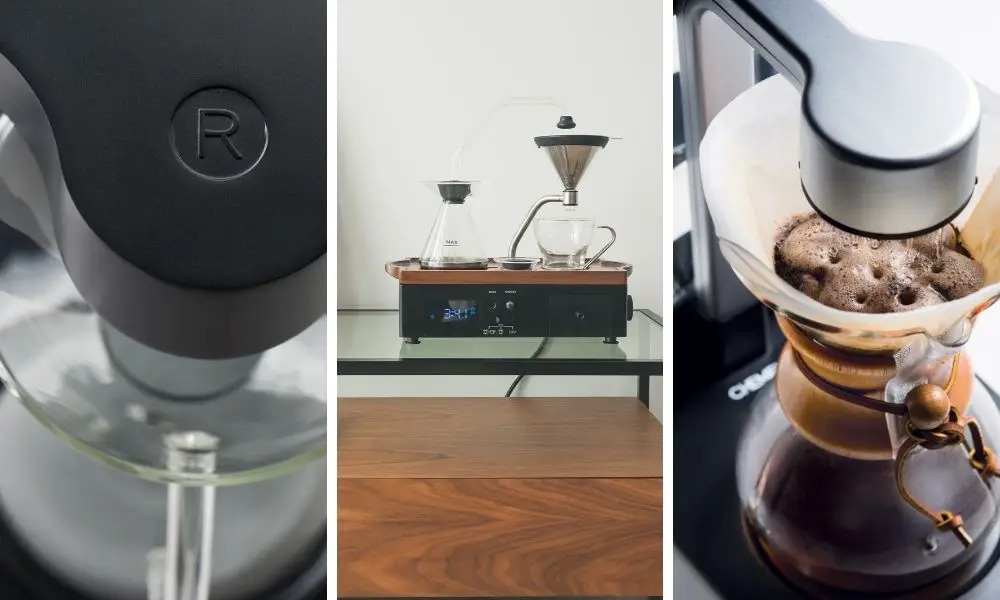We may get commissions for purchases made through links in this post. Thanks for the support! 👍
There are hundreds if not thousands of different coffee makers on the market today! They all make coffee, however they all make it in different ways. You likely have run into where you make a cup of coffee one way, and then you try it with a different method with the same grounds and have found it to taste completely different. We are going to dig into that in this article.
So do different coffee makers change coffee’s taste? Every coffee maker makes coffee in a different way, and due to the changes in flow rates, temperature of water, amount of coffee grounds, and even what type of filter you are working with can completely change what your end result will be. This all can happen with the same exact coffee grounds.
Let’s talk a little bit about each of these things, and how different coffee makers can completely change how coffee tastes.

1. Temperature of water
The biggest thing that changes how coffee tastes is how hot the water is! If you are using a manual coffee maker and an electric kettle, you can perfect that temperature of the water down to a degree. However automatic coffee makers can only be programmed from the factory!
Because of this, you have an array of different temperatures, depending on what the manufacturers deem correct. This means one coffee maker may brew at 180 degrees, while another one brews at 200 degrees or more.
This will completely change how quickly, and how effectively the coffee grounds are extracted, and will change the taste dramatically. That is why you can run two automatic coffee makers next to each other with the same grounds, and get completely different tastes.
2. Flow rate
Another big component to affecting how coffee tastes is how quickly water is distributed over coffee grounds! Less expensive coffee makers tend to dump the coffee into the grounds, while nicer coffee makers (yet still budget friendly) like this right here will actually add a bit of water, let the bloom set and then bring more water in at the right pace.
Pacing of this water means the best extraction, and the best taste! These nicer coffee makers can make a much better taste due to their more advanced features.
3. Amount of coffee grounds
Different coffee makers will allow for more, or less grounds than others! When you put more grounds into a coffee you will get a much stronger taste, and of course if you add less you will get a weaker taste.
Depending on which coffee maker you choose, you may have different levels of taste because of this!
4. Type of filter
Surprisingly, filters make a huge difference in the taste of coffee. For example you can have a #4 filter in either a paper style filter, or a metal filters. Metal filters tend to have larger holes, which means you will get a lot more sediment into your cup.
Meanwhile a paper filter will allow far less sediment through it, and gives you a much cleaner cup of coffee and thus a much different taste.
5. How coffee makers distribute water

The final big reason why different coffee makers taste differently comes down to how they distribute their water over the grounds!
Nicer coffee makers such as the Ratio Coffee Maker right here are perfectly built to create the exact same experience you would get from a professional barista making pour over coffee. This will make it so all of the coffee grounds are extracted.
Meanwhile, low end coffee makers tend to have a single spout in the middle of the grounds where the water is added. This creates channeling down the middle of the grounds, and results in the middle being over-extracted, and the outer sections of the coffee grounds not being extracted at all.
This can result in a bitter taste, and is actually why many people don’t like coffee in the first place.
Frequently Asked Questions
Does a better coffee maker make better coffee?
Generally speaking, better coffee makers do in fact make better coffee! With so much money being poured into development, these better coffee makers better implement each factor of making a great cup of coffee. It may sound easy, but in reality it is not an easy job to make an automatic machine that makes a great cup of coffee.
Does brewing method affect coffee taste?
There are many different types of brewing methods. Generally automatic coffee makers tend to use the pour over coffee method. However there is also immersion brewing like french presses, filtration method, cold brew and so many more. Coffee has been around for a while at this point, and many different styles have been created.
Why doesn’t my coffee taste like the coffee shop?
Outside of how a coffee maker brews the coffee, your coffee at home may taste different from your local coffee shop’s for a couple reasons. Those are that they may use a better coffee bean, a more fresh coffee bean, different dairy products and more.
Conclusion
I have made coffee with tons of different methods including the Aeropress, French Press, The American Press (all the presses), but also pour over and more. However you can’t beat the ease of an automatic coffee maker! That said, having the right automatic coffee maker can mean the difference between having a good, and a bad coffee maker.
